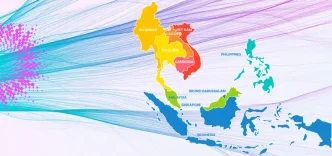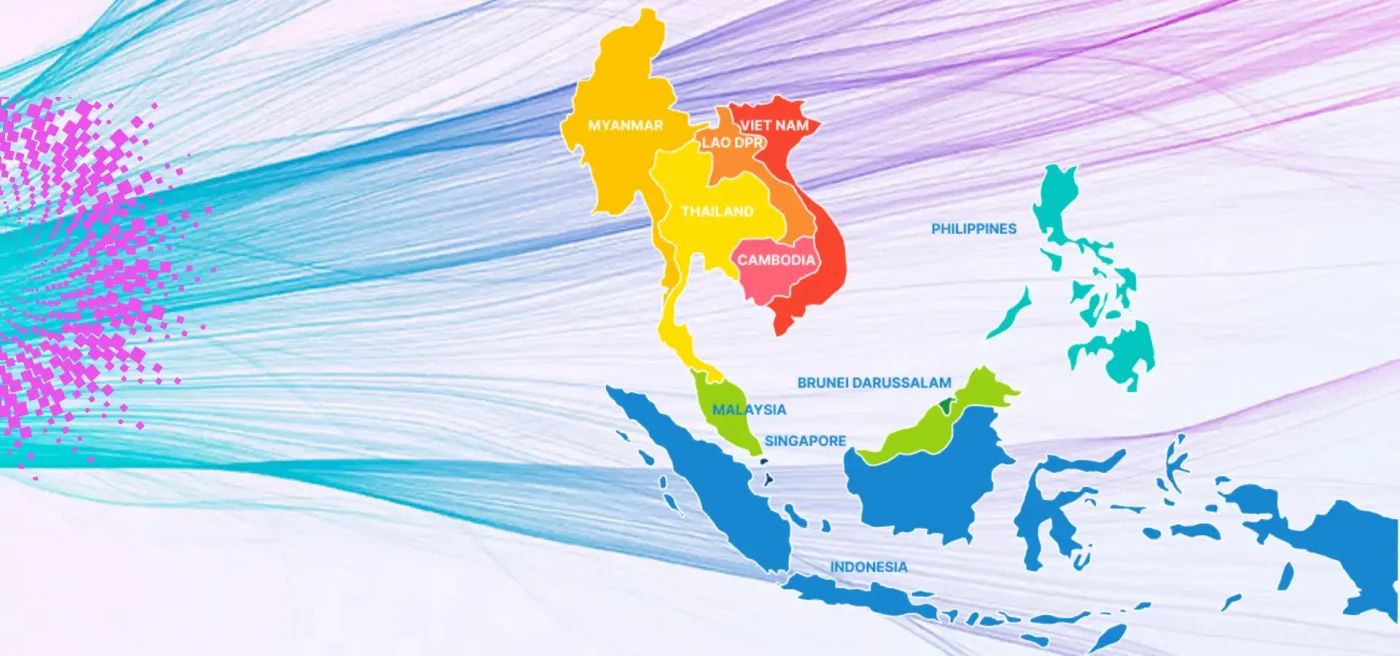Malaysia, under the leadership of Prime Minister Anwar Ibrahim, is steering the Association of Southeast Asian Nations (ASEAN) toward significant breakthroughs as it hosts the latest summit in Kuala Lumpur. With regional leaders converging since May 23, 2025, Anwar has expressed optimism about “very constructive” outcomes on critical issues, including a regional power grid and the ongoing civil war in Myanmar. This year’s chairmanship has positioned Malaysia as a pivotal player in fostering consensus within the 10-nation bloc, addressing both economic integration and humanitarian crises.
Power Grid: A Step Toward Regional Energy Integration
One of the flagship initiatives highlighted at the summit is the development of a regional power grid, a project that promises to reshape energy dynamics in Southeast Asia. Anwar revealed in a May 25 interview with regional press, including The Straits Times, that the connection between Vietnam, Malaysia, and Singapore is “considered done,” with efforts now focused on accelerating the infrastructure rollout. This includes an overland route and an undersea cable originating from Sarawak, a state in East Malaysia planning to expand its renewable energy capacity to 15 gigawatts by 2035.
The project, which requires an estimated investment of US$764 billion according to ASEAN Secretary-General Kao Kim Hourn, faces logistical challenges. Two potential cable routes are under consideration—one landing in West Malaysia and the other in Singapore. Anwar emphasized flexibility in discussions with Singapore’s Prime Minister Lawrence Wong, stating, “whichever is earliest… we are fine with both.” He also underscored the need for clear agreements to ensure Singapore receives its required power share, particularly as a Sarawak-Singapore line would traverse Indonesian waters. A 1-gigawatt supply agreement between Singapore and Sarawak, set for completion by 2031, further solidifies this partnership.
The economic implications of a unified power grid are profound. By pooling renewable energy resources, ASEAN nations could reduce dependency on fossil fuels, lower energy costs, and enhance regional stability. However, the staggering financial commitment raises questions about funding mechanisms and equitable cost-sharing among member states. Analysts suggest that while Malaysia’s leadership on this issue is commendable, securing long-term political and financial buy-in from all parties remains a hurdle.
Myanmar Crisis: A Fragile Ceasefire and Humanitarian Push
Beyond energy, Malaysia is leveraging its ASEAN chairmanship to address the humanitarian crisis in Myanmar, where a military coup in February 2021 has led to widespread violence, displacing over 3.5 million people and devastating the economy. Anwar has taken a proactive stance, engaging with both the Myanmar junta and the shadow National Unity Government (NUG). On April 17, he met with junta chief Senior General Min Aung Hlaing during a visit to Bangkok, followed by virtual talks with the NUG the next day.
According to Anwar, the junta agreed to extend a ceasefire initiated on April 2, which he described as “important to allow humanitarian assistance to cover all of Myanmar.” He highlighted Malaysia’s field hospital operations as evidence of progress, noting that the junta has “tolerated and allowed” such initiatives—a departure from its previously rigid stance. “There have been skirmishes, but each side claims it is violence from the other side” said Anwar, acknowledging the fragile nature of the truce.
Despite these efforts, reports paint a grimmer picture. The United Nations and other observers have documented continued violence, with hundreds of attacks by the military reportedly killing 200 civilians since the ceasefire. A joint statement on May 19 by the Special Advisory Council for Myanmar, including three UN experts and former Malaysian Foreign Minister Saifuddin Abdullah, condemned the junta’s “unremitting violence inflicted on civilians” and urged ASEAN to facilitate inclusive talks involving the NUG and other stakeholders.
Malaysian Foreign Minister Mohamad Hasan, who chaired discussions with ASEAN counterparts on May 24, emphasized ongoing engagement with Myanmar’s stakeholders. “We have already met with the respective stakeholders and we know their wish list. Now, we want to present it to the State Administrative Council and wait for feedback” he told reporters, referring to the military government. While Malaysia’s diplomatic push marks a rare opening for dialogue, the path to a sustainable peace deal remains fraught with challenges, including mutual distrust and the junta’s reluctance to cede control.
Broader ASEAN Agenda: Trade and Geopolitical Tensions
Malaysia’s aggressive engagement within ASEAN, as described by Anwar, extends to economic and geopolitical spheres. The summit has fostered consensus on intra-ASEAN trade enhancements and responses to external pressures, such as the United States’ blanket import tariffs. These discussions are critical as the bloc seeks to bolster economic resilience amid global uncertainties.
Geopolitically, Malaysia’s foreign policy under Anwar has drawn attention for its apparent shift away from Western alignment. Since taking office in November 2022, Anwar has prioritized ties with major powers like China and Russia. The recent visits by Chinese President Xi Jinping in April and Premier Li Qiang on May 26 for the inaugural ASEAN-Gulf Cooperation Council-China Summit underscore this pivot. Such engagements have fueled speculation about Malaysia’s role in navigating ASEAN’s stance on contentious issues like the overlapping claims in the South China Sea, where several member states clash with Beijing.
While Anwar’s approach has sparked debate among observers, it has also heightened expectations for tangible outcomes during Malaysia’s chairmanship. The South China Sea disputes, coupled with the Myanmar crisis, test ASEAN’s unity and its ability to mediate internal and external conflicts. Malaysia’s balancing act—strengthening regional ties while engaging global powers—could set a precedent for how smaller nations wield influence in a multipolar world.
Challenges and Opportunities Ahead
Malaysia’s leadership at the ASEAN Summit reflects a dual focus on pragmatic economic integration and urgent humanitarian intervention. The regional power grid initiative, if realized, could serve as a model for collaborative infrastructure projects, though its success hinges on overcoming financial and logistical barriers. Similarly, while Malaysia’s diplomatic efforts in Myanmar offer a glimmer of hope, the persistent violence and deep-seated divisions suggest that peace remains elusive.
Anwar’s tenure as ASEAN chair also underscores Malaysia’s evolving role on the global stage. By fostering dialogue on trade, energy, and conflict resolution, Kuala Lumpur is positioning itself as a mediator and innovator within the region. However, the complexities of managing diverse national interests within ASEAN, alongside external geopolitical pressures, pose significant challenges.
As the summit progresses, the international community watches closely. Will Malaysia’s initiatives translate into lasting change for ASEAN, or will entrenched obstacles hinder progress? For now, Anwar’s optimism and proactive diplomacy signal a determined push for consensus, with the potential to reshape Southeast Asia’s future on multiple fronts.
















